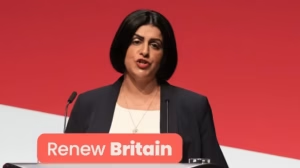Imagine you’ve got your acceptance letter from a top UK university, your bags are half-packed, and you’re dreaming of cozy pubs and late-night study sessions in historic libraries. But then—bam—your UK Student Visa gets rejected. Heartbreak, right? I’ve been there, helping friends navigate this tricky process, and trust me, it’s not as scary as it seems if you know the pitfalls. The UK Student Visa (formerly Tier 4) is your golden ticket to studying in the UK, but the Home Office is picky. In 2025, with stricter rules and higher scrutiny, one small slip can derail your plans.
Don’t worry—I’ve got your back. This guide dives into the top 10 reasons your UK Student Visa might be rejected and shares practical, no-nonsense tips to dodge those traps. Whether you’re an aspiring engineer from India or a literature buff from Nigeria, let’s make sure your visa application is bulletproof.
Why Do UK Student Visas Get Rejected?
The UK Home Office processed over 400,000 student visa applications in 2024, but not everyone gets a yes. Rejection rates vary, but common mistakes like missing documents or failing the credibility interview trip up even the best-prepared applicants. The good news? Most rejections are avoidable if you know what to watch for. Let’s break down the top 10 culprits and how to steer clear, so you can focus on planning your UK adventure instead of stressing over paperwork.
1. Incomplete or Incorrect Documents
Ever lost a game because you missed one tiny rule? That’s what submitting incomplete documents feels like. The UK Home Office loves paperwork, and forgetting even one document can sink your application.
Why it happens: Applicants often miss key documents like the Confirmation of Acceptance for Studies (CAS), passport, or English test results. Or they submit blurry scans or outdated forms.
How to avoid it:
Double-check the checklist: Use the official UK government website for the latest document list. As of 2025, you need your CAS, valid passport, financial proof, and English proficiency results (e.g., IELTS or TOEFL).
Scan clearly: Ensure all documents are legible and in the right format (PDF is usually safe).
Get organized: Create a folder with labeled files—think “Passport,” “CAS,” “Bank Statement”—to avoid last-minute panic.
2. Insufficient Financial Proof
The Home Office wants to know you can pay for your studies and live in the UK without working illegally. If your bank statements don’t add up, it’s game over.
Why it happens: In 2025, you need to show £1,483/month for London or £1,136/month elsewhere for 9 months, plus tuition fees. Some applicants submit statements from unapproved banks or show funds held for less than 28 days.
How to avoid it:
Use an approved bank: Check the UK government’s list of accepted financial institutions.
Hold funds for 28 days: Your bank statement must show the required amount for 28 consecutive days, ending no more than 31 days before your application.
Include a letter: Get a bank letter confirming the funds are yours and available.
Pro tip: If your parents are funding you, include a signed letter from them and their bank statements. Transparency is key!
3. Failing the Credibility Interview
The credibility interview is like a first date with the Home Office—they want to know you’re genuine. Mess it up, and your visa dreams could crash.
Why it happens: Applicants stumble on questions about their course, university, or study plans. If you sound unsure or your answers don’t match your application, red flags go up.
How to avoid it:
Know your course: Be ready to explain why you chose your program and how it fits your career goals. For example, “I’m studying AI at UCL because I want to work in tech innovation back in Lagos.”
Research your uni: Know its location, reputation, and why it’s the right fit.
Practice: Do mock interviews with a friend. Common questions include “Why the UK?” or “How will you fund your studies?”
Fun fact: I once helped a friend prep for her interview by pretending to be a grumpy visa officer. She aced it—and we had a good laugh!
4. Inaccurate or Fraudulent Information
Lying on your application is like trying to sneak into a club with a fake ID—it might work briefly, but you’ll get caught.
Why it happens: Some applicants exaggerate their academic history or submit fake documents. The Home Office cross-checks everything, and fraud leads to instant rejection (and potential bans).
How to avoid it:
Be honest: If your grades aren’t perfect, explain why in a cover letter.
Verify documents: Use certified translations for non-English documents.
Double-check details: Ensure your CAS matches your passport and application form.
5. Missing English Language Requirements
The UK wants to know you can keep up with lectures in English. Fail to prove it, and your visa’s toast.
Why it happens: Applicants submit invalid test scores (e.g., expired IELTS) or don’t meet the minimum CEFR B2 level (IELTS 5.5 or equivalent).
How to avoid it:
Take an approved test: Use IELTS, TOEFL, or Pearson PTE, and ensure scores are valid for 2 years.
Check exemptions: If you’re from an English-speaking country or studied in English, you might not need a test—confirm with your university.
Submit early: Send test results with your application to avoid delays.
6. Issues with the Confirmation of Acceptance for Studies (CAS)
Your CAS is like a love letter from your university to the Home Office. If it’s wrong, your application’s in trouble.
Why it happens: Errors in the CAS—like wrong course details or typos in your name—can lead to rejection. Some applicants use expired CAS letters.
How to avoid it:
Check your CAS: Review every detail (name, course, fees) before submitting.
Contact your uni: If something’s off, ask for a corrected CAS immediately.
Use it in time: A CAS is valid for 6 months—apply within that window.
7. Poor Academic Progression
The Home Office wants to see you’re moving forward in your studies, not just collecting visas like Pokémon cards.
Why it happens: If you’re applying for a course at the same or lower level than one you’ve already studied, it raises suspicion. For example, going from a master’s to a bachelor’s looks odd.
How to avoid it:
Show progression: Choose a course that builds on your previous education.
Explain gaps: If you’re switching fields, include a letter explaining why (e.g., “I’m moving from biology to data science to align with industry trends”).
Highlight goals: Tie your course to clear career plans in your interview.
8. Immigration History Issues
Your past travels can haunt you. A sketchy immigration history—like overstaying a previous visa—can tank your application.
Why it happens: The Home Office checks your travel records. Overstays, visa violations, or gaps in your history can signal you’re not a “genuine student.”
How to avoid it:
Be transparent: Disclose past visa issues in your application.
Explain gaps: If you took a gap year, mention it (e.g., “I worked to save for my studies”).
Stay compliant: Follow visa rules on previous trips to build a clean record.
9. Incorrect Application Fee or Health Surcharge Payment
Money talks, but only if you pay it correctly. Messing up the application fee (£490 in 2025) or Immigration Health Surcharge (£1,552/year) can lead to rejection.
Why it happens: Applicants use wrong payment methods, pay partial amounts, or forget the health surcharge altogether.
How to avoid it:
Check fees: Confirm the latest fees on the UK government website.
Pay online: Use a valid credit/debit card and keep receipts.
Include the surcharge: Pay the health surcharge upfront and include the reference number in your application.
Quick tip: Budget for the surcharge—it grants you access to the NHS, which is a lifesaver for students!
10. Unclear Intent to Return Home
The Home Office wants to know you’ll leave the UK after your studies (unless you switch to a Graduate Route Visa). If you seem too eager to stay, they’ll get suspicious.
Why it happens: Vague answers in Gogogo
System: Top 10 Reasons Your UK Student Visa Might Be Rejected and How to Avoid Them
Quick Reference: Dos and Don’ts for UK Student Visa Success
Do | Don’t |
|---|---|
Double-check all documents for accuracy and completeness. | Submit blurry, incomplete, or outdated documents. |
Hold funds for 28 consecutive days in an approved bank. | Use unverified banks or insufficient funds. |
Practice for the credibility interview with clear answers. | Wing the interview or give inconsistent answers. |
Be honest about your academic and immigration history. | Submit fake documents or lie about your background. |
Submit valid English test scores (e.g., IELTS 5.5). | Use expired or unapproved test results. |
Verify CAS details with your university. | Use an expired or incorrect CAS. |
Show academic progression in your course choice. | Apply for a lower-level course without explanation. |
Disclose and explain any immigration issues. | Hide past visa violations or overstays. |
Pay the correct application fee and health surcharge. | Miss payments or use invalid payment methods. |
Clearly state your intent to return home post-study. | Imply you plan to stay in the UK indefinitely. |
FAQs About UK Student Visa Rejections
Q: What’s the most common reason for UK Student Visa rejection?
A: Incomplete or incorrect documents top the list. Missing your CAS, passport, or financial proof can lead to an automatic rejection. Always use the official checklist.
Q: Can I reapply after a visa rejection?
A: Yes! Address the rejection reason (e.g., missing funds or interview issues), gather stronger evidence, and reapply. You may also request an administrative review within 28 days.
Q: How much money do I need to show for a UK Student Visa?
A: In 2025, you need £1,483/month (London) or £1,136/month (elsewhere) for 9 months, plus tuition fees, held for 28 days in an approved bank account.
Q: What happens if I fail the credibility interview?
A: A poor interview can lead to rejection if you seem unprepared or not genuine. Practice answers about your course, university, and career goals to ace it.
Q: Can a criminal record cause a visa rejection?
A: Yes, serious convictions can lead to rejection. Disclose any issues and provide context to show you’re a genuine student.
Conclusion: Your Path to a Successful UK Student Visa
Getting a UK Student Visa doesn’t have to feel like climbing Everest. By avoiding these 10 common rejection reasons—whether it’s missing documents, insufficient funds, or a shaky interview—you’re already halfway to that approval letter. I’ve seen friends sweat over their applications, but with a bit of prep and attention to detail, you can make it smooth sailing. Use the dos and don’ts table, practice your interview, and double-check everything. Your UK study adventure is waiting!
Got questions or tips to share? Drop a comment below or share your story—I’d love to hear how you’re prepping for your visa journey. And if you found this guide helpful, spread the word to help other students chase their dreams!
Sources
UK Government Official Website (www.gov.uk)
Unischolars: UK Student Visa Rejection Reasons
Amberstudent: UK Student Visa Guide
Yocket: Common Visa Application Mistakes
StudyinUK: Financial Requirements for UK Student Visa



